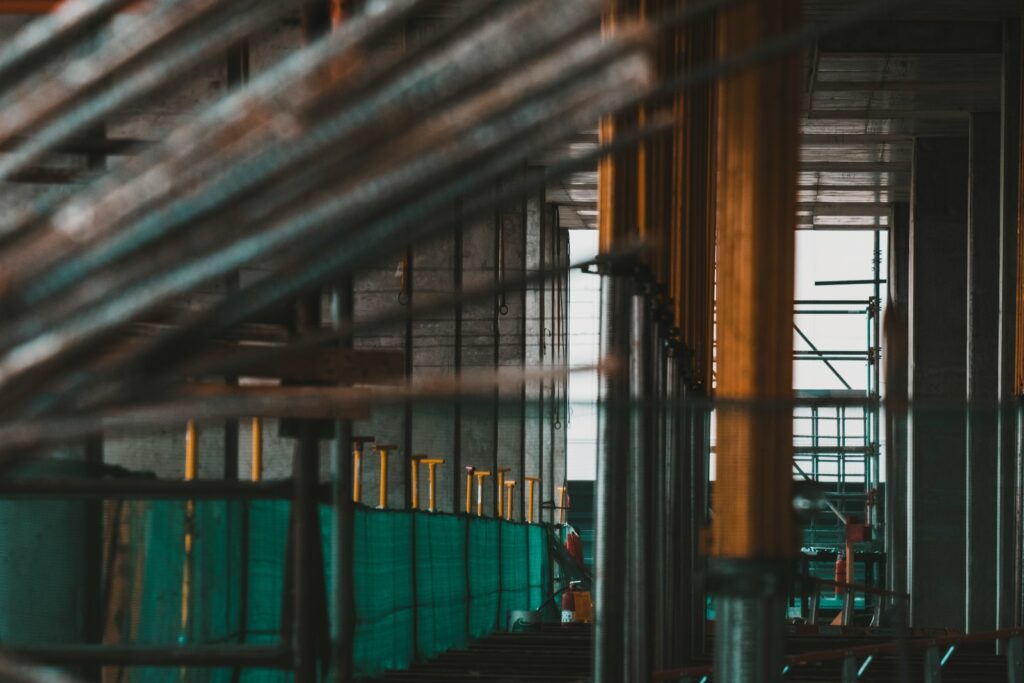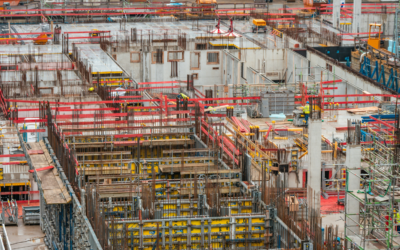If you’re a property developer or real estate professional tackling construction projects, you know the stakes are high. From budget constraints to tight deadlines, every step of the process demands precision and expertise. At the heart of it all is a trusted ally—the contractor—who plays a pivotal role in turning your vision into reality.
But what does a contractor do, exactly? This blog dives into the responsibilities of a general contractor, their role in construction management, and why hiring the right professional makes all the difference in your construction and remodeling projects.

Understanding Contractors and Construction Projects
A contractor is a key partner who manages and oversees a property developer’s construction project. Acting as both a leader and problem-solver, they ensure that goals are met efficiently and to the highest standards.
Why Understanding Their Role Matters
Before signing a contract, property owners need a detailed understanding of what to expect from their contractor. Miscommunication or misaligned expectations can derail projects, leading to delays, budget overruns, or even stalled projects. Knowing what contractors bring to the table (and the limits of their responsibilities) ensures smoother workflows and better outcomes.
Contractors in the Construction Industry
A general contractor is responsible for shepherding construction jobs from start to finish. Whether managing several subcontractors, compliance with building codes, or balancing a complex construction budget, their role is vital to the project’s success. This principle applies equally to large-scale commercial developments and single-property residential projects.
Now that we’ve set the stage, let’s explore the heart of the contractor’s work.
What Does A Contractor Do? | Responsibilities of a General Contractor
A general contractor’s role spans a wide range of tasks, combining project management, quality assurance, and safety oversight.
Key Responsibilities
Here’s what general contractors are responsible for:
From planning to final inspections, general contractors follow the project through every phase, ensuring all work meets predetermined goals.
- Hiring Subcontractors
Contractors oversee recruiting and managing specialty subcontractors for tasks like plumbing, electrical, or carpentry. Their network ensures these professionals are skilled and reliable.
- Overseeing Job Sites and Materials
They coordinate the delivery of construction materials, equipment, and other resources while keeping workers on schedule.
- Maintaining Safety Standards
A construction job involves risks, but a contractor ensures adherence to safety regulations to protect workers and the project.
- Ensuring Quality Control
The contractor is hands-on in guaranteeing that all work completed on-site adheres to quality specifications.
- Budget and Cost Management
From pre-construction to execution, accurate accounting and cost control keep the project within financial limits.
A contractor’s responsibilities extend beyond just managing subcontractors. To appreciate their full value, it’s important to understand their role in broader project management.

Construction Project Management
General contractors are also project managers, blending strategic direction with tactical execution to ensure projects run efficiently. Here’s how they approach management tasks:
Pre-Construction Services
Before the first brick is laid, a contractor evaluates every aspect of the project. This phase includes:
- Assessing designs and aligning them with the project’s goals.
- Creating practical construction plans.
- Identifying cost-saving opportunities while meeting design specifications.
Coordinating Prime Contractors
Most large-scale projects involve managing “prime contractors” who handle specialized tasks. A general contractor ensures they work together seamlessly to keep timelines and budgets on track.
Progress and Accountability
During the construction phase, your contractor keeps the pulse of progress through regular updates, site inspections, and issue management. Think of them as the quarterback for the entire construction process.
But what about construction managers—how do they fit in?

Working with a Construction Manager
While contractors and construction managers seem similar, they serve distinct roles in the construction industry.
The Role of a Construction Manager
A construction manager complements the general contractor by offering their expertise during planning and construction, focusing on deadlines, budgets, and task coordination.
For example, a construction manager might specialize in keeping trade contractors aligned with timelines or ensuring the quality of work meets the client’s specifications.
Together, these roles work symbiotically, creating a synergy that supports complex construction projects. This is particularly valuable during large-scale developments, where the stakes are higher.

Hiring a Reliable Contractor
Finding the right contractor for construction work can be the difference between project success and failure. Here are actionable steps to hiring the perfect fit:
Steps to Take:
- Research Local Contractors. Start by seeking referrals from trusted professionals or searching reputable online directories for licensed contractors.
- Check Credentials. Confirm they hold the proper licenses, insurance, and local certifications specific to your project type.
- Evaluate References and Past Work. Speak to previous clients, asking about timelines, communication, and the project’s quality.
Clear communication and expertise are non-negotiable qualities. Look for contractors who provide realistic timelines and confidently answer questions about the construction process.
The Cost of Hiring a General Contractor
What does it cost to hire a general contractor? Rates generally depend on the project’s size, location, and scope:
- Percentage-Based Fees: Contractors may charge 10–20% of the total project cost, covering materials and labor.
- Flat Fees: Hourly or daily rates are also common. Discuss pricing expectations at the outset to avoid surprises.
Request multiple quotes before hiring to compare costs and ensure you’re receiving fair value.
Licensing Requirements for Contractors
Contractor licensing ensures compliance with local laws and regulations. For example, in California, general contractors must meet the licensing standards set by the California State Licensing Board (CSLB). Before finalizing any agreement, verify the contractor’s credentials through your regional authority for added peace of mind.
Communication and Expectations
Clear communication is integral to every stage of the construction phase. Homeowners and contractors alike should engage in regular check-ins to review progress and address emerging concerns.
Establishing a Strong Partnership
- Schedule weekly or biweekly meetings to review milestones.
- Avoid micromanaging, trusting the contractor to demonstrate their expertise without interference.
Fostering mutual respect and clear expectations enables a contractor to deliver quality results with minimal hiccups.

Finding a Contractor for Your Construction Project
Whether you’re building the next office high-rise or remodeling a rental property, finding the right partner starts with preparation.
- Use Referrals or Trusted Networks. Local construction companies or industry contacts are excellent resources.
- Research Carefully. Transparent contract terms, positive client feedback, and accessible communication are hallmarks of a reliable contractor.
Planning for Success
Successful construction projects start with meticulous preparation. This means hiring a well-qualified contractor, working collaboratively, and addressing potential challenges upfront.
Property developers who prioritize these steps—like setting a construction budget, checking licensing requirements, and coordinating job-site preparations—are often rewarded with seamless experiences.

Your Partner in Construction Success
A trusted contractor transforms blueprints into buildings, ensuring every phase—pre-construction to completion—is handled with precision. Whether you’re navigating your first project or managing several subcontractors on-site, hiring a contractor helps you achieve your goals faster and more efficiently.
When in doubt, prioritize communication, attention to detail, and proper vetting processes. A solid foundation sets the stage for a construction project that stands the test of time.
About South Coast Improvement Company
At South Coast Improvement Company, we pride ourselves on being leaders in the construction and renovation industry. With a commitment to excellence, innovation, and customer satisfaction, we specialize in a range of services, including design-build projects, renovations, and new construction for commercial, senior living, healthcare, and educational facilities.
Our experienced team focuses on delivering high-quality workmanship while ensuring minimal disruption to daily operations. Trust South Coast Improvement Company to transform your vision into reality with professionalism and a keen attention to detail.
Learn More
A contractor plays a crucial role in various industries by managing and executing specific tasks or projects. Their responsibilities can vary depending on their field of expertise but commonly include planning, coordinating, and overseeing projects to ensure they are completed on time and within budget.
Here are some helpful resources to learn more about what contractors do:
- Freelance Contractor Guide – Information on becoming and succeeding as a freelance contractor.
- Independent Contractor Tax Tips – Learn about tax obligations and tips for independent contractors.
- OSHA Safety Guidelines for Contractors – Explore essential safety standards and practices for contractors from OSHA.
- Time Management for Contractors – Discover strategies to effectively manage your time as a contractor.
- Sustainable Building Practices – Learn about eco-friendly construction methods and sustainable building certifications.
- Contract Templates and Legal Resources – Access contract templates and legal guidance tailored for contractors.
- Construction Technology Trends – Stay updated on the latest technology advancements in the construction industry.
These resources can provide valuable insights and help you better understand the scope and responsibilities of a contractor’s work.
View Our Work
Aspen Dental
Partnering with The Aspen Group on the construction of a new Aspen Dental facility that’s functional & welcoming for patients & staff alike. South Coast Improvement Company was awarded the construction of a new Aspen Dental facility in Killingly, CT. The...
Springhouse Senior Living – HumanGood
Designed to enhance comfort & functionality. South Coast Improvement company was hired by HumanGood for an interior and exterior renovation at Springhouse Senior Living. Our skilled teamtransformed the 2nd through 5th floor common areas into brighter, more...






